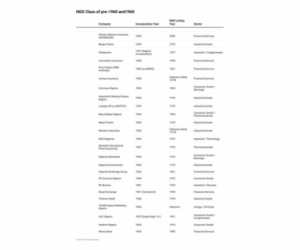The Nigerian government recently unveiled a new capital gains tax (CGT) aimed at making the system more progressive.
The new regime, which will start on January 1 2026, is rumoured to have raised the CGT from 10 percent to 30 percent unless the proceeds are reinvested in other listed or unlisted domestic equities.
Several stakeholders, including those in the capital market, have consequently expressed concern that the rumoured increase will put the nation’s stocks at risk and disincentivise foreign investment.
However, Taiwo Oyedele, chairman, Nigeria’s Presidential Committee on Fiscal Policy and Tax Reforms, recently took to his official X handle to provide clarity on this and several other frequently asked questions on Nigeria’s new tax laws.
He revealed that the CGT rate has not been increased to 30 percent, noting that it has rather been integrated into personal and corporate income tax.
“This means the tax you pay on capital gains depends on your overall income level or company profits, making the system more progressive. Effectively, the applicable CGT rate under the new laws ranges from 0percent to 30percent,” Oyedele said.
The CGT is a tax charged on the profit made from the sale of a chargeable asset such as shares, real estate, or other investments.
Currently, CGT in Nigeria is charged at a flat rate of 10 percent on all chargeable assets, regardless of the taxpayer’s income level,” he said.
“The reform makes CGT progressive so that low-income earners either pay no CGT or pay less, while higher-income earners contribute a fairer share. It also helps to reduce distortions where income could previously be misclassified as capital to enjoy a lower, flat CGT rate,” he further said.
𝐇𝐨𝐰 𝐝𝐨𝐞𝐬 𝐧𝐞𝐰 𝐥𝐚𝐰 𝐛𝐞𝐧𝐞𝐟𝐢𝐭 𝐢𝐧𝐯𝐞𝐬𝐭𝐨𝐫𝐬?
Oyedele explained that the CGT only applies to net gains, since capital losses can be offset against capital gains.
He said that proceeds from sales not exceeding N150 million annually, where the gains are not more than N10 million, are exempt. This means about 99 percent of individual investors are effectively exempt.
“Where the proceeds exceed the exemption threshold, CGT is not due if such proceeds are reinvested into the shares of a Nigerian company,” he said.
“Institutional investors such as pension funds are exempt from CGT, just as they are from corporate income tax.”
He stated that companies undergoing reorganisations, mergers, or restructurings are not subject to CGT on those transactions.
𝐈𝐬 𝐭𝐡𝐢𝐬 𝐫𝐞𝐟𝐨𝐫𝐦 𝐦𝐞𝐚𝐧𝐭 𝐭𝐨 𝐢𝐧𝐜𝐫𝐞𝐚𝐬𝐞 𝐠𝐨𝐯𝐞𝐫𝐧𝐦𝐞𝐧𝐭 𝐫𝐞𝐯𝐞𝐧𝐮𝐞?
Oyedele noted that the CGT revenue is historically very small as it is less than two percent of what is collected from Companies Income Tax (CIT) and Value Added Tax (VAT).
“The reforms are about harmonisation, fairness and efficiency. In fact, businesses will benefit far more from reduced CIT rates and broader VAT input credits. For instance, the Federal Inland Revenue Service (FIRS) collected only N52 billion from CGT in 2024 compared to over N15 trillion from CIT and VAT. The reduced CIT rate and broader VAT credit are estimated to benefit businesses in the region of N4.5 trillion,” he explained.
He revealed that most foreign investors can claim tax credits in their home countries for taxes paid in Nigeria under double taxation agreements or unilateral tax relief. This means CGT paid in Nigeria will often not be an additional cost.
𝐖𝐢𝐥𝐥 𝐭𝐡𝐞𝐬𝐞 𝐜𝐡𝐚𝐧𝐠𝐞𝐬 𝐦𝐚𝐤𝐞 𝐍𝐢𝐠𝐞𝐫𝐢𝐚 𝐥𝐞𝐬𝐬 𝐚𝐭𝐭𝐫𝐚𝐜𝐭𝐢𝐯𝐞 𝐟𝐨𝐫 𝐢𝐧𝐯𝐞𝐬𝐭𝐦𝐞𝐧𝐭?
He said these changes will not make Nigeria less attractive, noting that the new rules are consistent with international best practices.
“Many countries already apply progressive tax treatment to capital gains, and exemptions for small investors and reinvestment make Nigeria’s regime competitive. When considered holistically, the lower CIT rate and broader input VAT credit in the new tax laws will improve profitability of companies, equity valuations, and enhance overall investor returns,” Oyedele said.
𝐃𝐨𝐞𝐬 𝐂𝐆𝐓 𝐫𝐞𝐟𝐨𝐫𝐦 𝐚𝐩𝐩𝐥𝐲 𝐨𝐧𝐥𝐲 𝐭𝐨 𝐭𝐡𝐞 𝐜𝐚𝐩𝐢𝐭𝐚𝐥 𝐦𝐚𝐫𝐤𝐞𝐭?
The tax chief noted that the CGT reform applies to all chargeable assets, unless specifically exempt.
He cited examples of exemptions in addition to the threshold for shares to include individuals selling up to two personal vehicles per year, and the sale of an owner-occupied residential property.
𝐃𝐨 𝐫𝐞𝐟𝐨𝐫𝐦𝐬 𝐚𝐝𝐝𝐫𝐞𝐬𝐬 𝐢𝐧𝐟𝐥𝐚𝐭𝐢𝐨𝐧 𝐚𝐧𝐝 𝐞𝐱𝐜𝐡𝐚𝐧𝐠𝐞 𝐫𝐚𝐭𝐞 𝐫𝐢𝐬𝐤𝐬?
He said the reforms do not address inflation and exchange rate risks, stressing that inflation and currency risks affect all investments and cannot be eliminated through tax laws. “Investors are expected to manage these risks as part of their broader investment strategies.”









